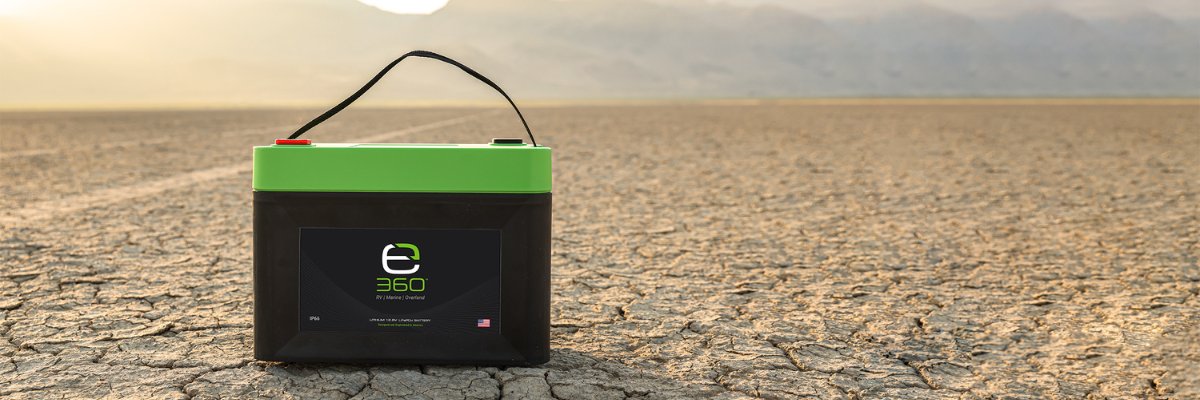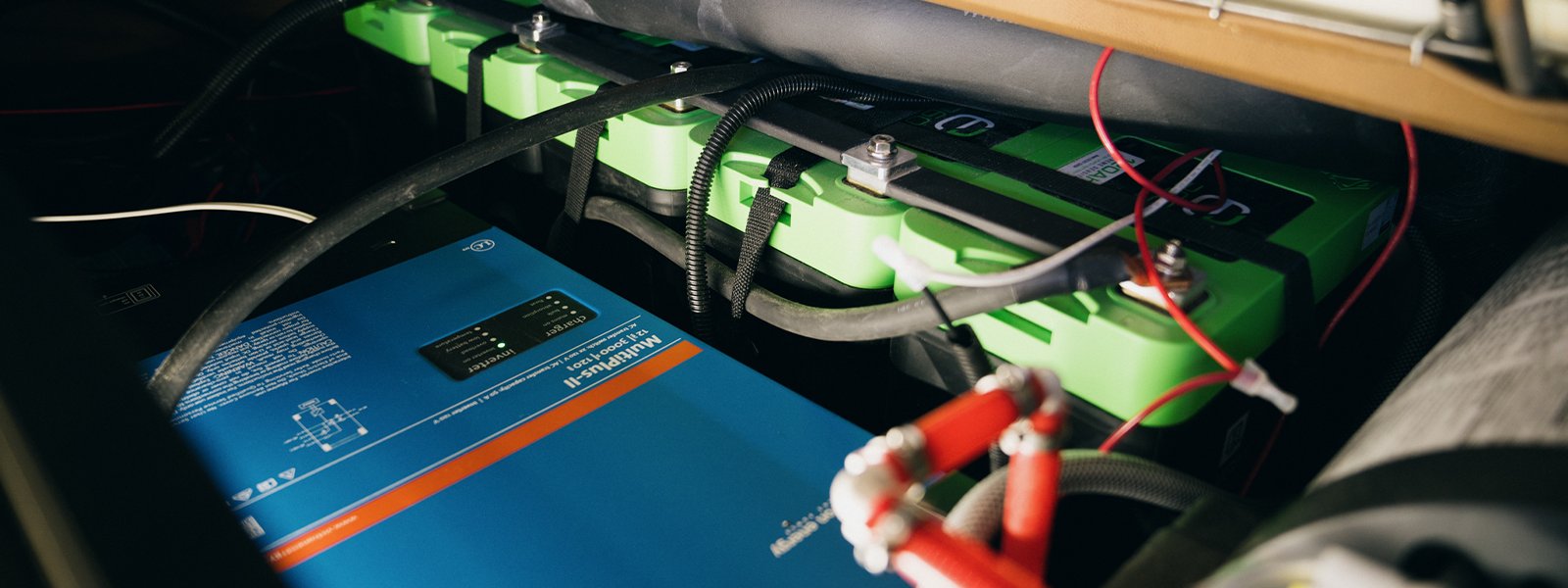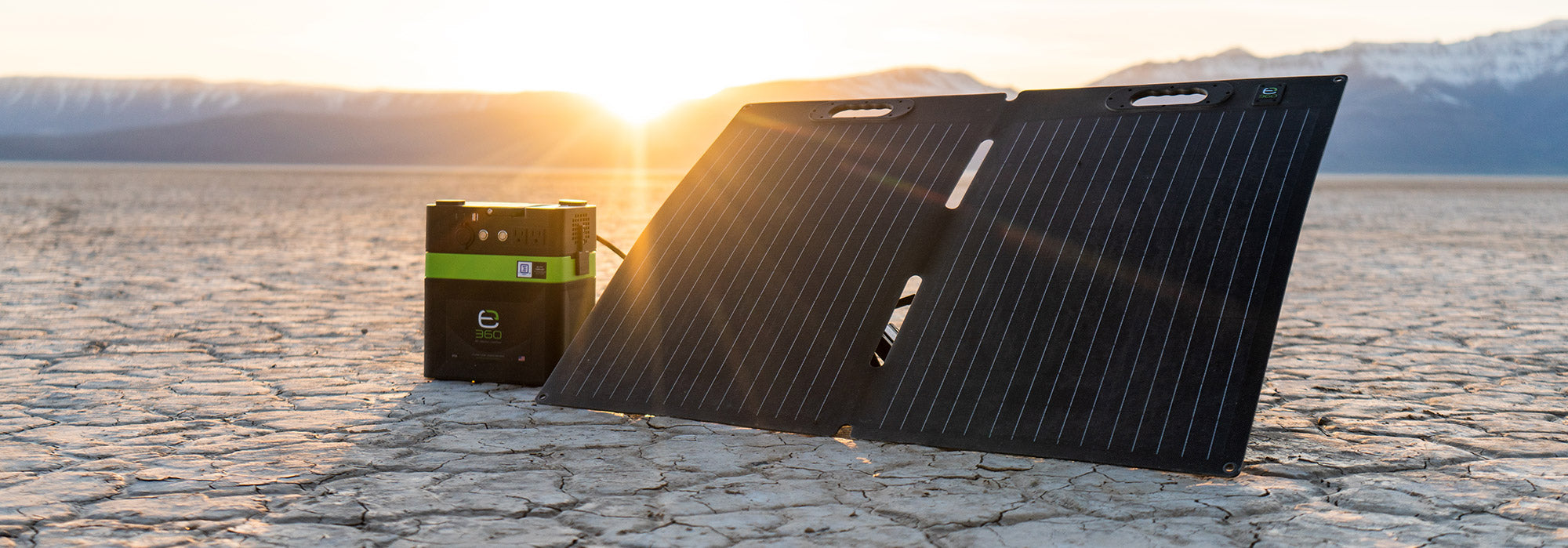The Difference in Details: E360's Groundbreaking Lithium Cells
At the heart of Expion360 batteries are lithium cells that power safer, more reliable adventuring. But how did we choose this chemistry to begin with? And what properties make lithium iron phosphate the clear winner in rechargeable energy storage? Read on to find out!
The Difference in the Details: E360 Lithium Cells
When you’re in the middle of nowhere, you don’t want your power level to be so-so. You need a system that’s built better and more efficiently, inside and out. Enter lithium cells. Widely regarded as one of the most stable, reliable types used for rechargeable batteries, lithium iron phosphate chemistry is in a league of its own. And at Expion360, we trust nothing but the best.
So, what are the details that make such a big difference to our customers’ reliable adventuring? Chemistry, energy density, voltage, and form factor.
Chemistry
Lithium iron phosphate (LiFePO4) cylindrical cells derive their functionality and chemistry from lithium compounds present in their electrodes. These main cell components consist of cathodes, anodes, and electrolytes, which collaborate to facilitate efficient and rechargeable energy storage. One of the insertion materials serves as the positive electrode, while the other functions as the negative electrode. During charging and discharging, lithium ions shuttle between these electrodes, enhancing overall energy density and resulting in higher performance and longer-lasting charges.
Energy Density
Energy density is usually measured in watt-hours (Wh). One of the hallmarks of lithium chemistry is the relatively high energy density, especially when compared to other rechargeable battery types (looking at you, lead acid). What does this mean for your future travels? Lithium iron phosphate batteries are ideal for a wide range of applications, especially those where space and weight are critical factors because they can store more energy for their size and weight.
Voltage
Lithium cells, particularly LiFePO4 cells, typically exhibit a higher voltage compared to other rechargeable batteries. While the exact voltage may vary, lithium chemistry cells typically operate at around 3.6 to 3.7 volts per cell, whereas other types such as nickel-cadmium (NiCd) or nickel-metal hydride (NiMH) cells operate at approximately 1.2 volts per cell. This higher voltage contributes to more efficient performance, increased power output, and reduced heat generation in LiFePO4 cells.
Form Factor
The form factor of a lithium iron phosphate (LiFePO4) cell refers to its physical shape, size, and design. The three most common form factors for these cells are prismatic, pouch, and cylindrical designs. At Expion360, we prioritize flexibility, adaptability, and safety in our Grade A cells. We have chosen the cylindrical form factor for optimal performance. However, our considerations extend beyond form factor alone. We have developed fortified cell packs for longevity and innovative case designs that have been industry leaders for nearly a decade.
Sidebar: How can you tell what type of cells are in your battery? If it’s an E360 battery, that’s an easy answer: lithium iron phosphate. Otherwise, look for the UL listing on the battery or in its documentation. If the battery has a warranty (all high-quality cells have at least a 10-year warranty), you can check there as well.
UL 1624 Certification
Grade A represents the highest quality standard across various industries, including rechargeable battery cells. At Expion360, we prioritize quality by exclusively utilizing Grade A lithium iron phosphate cells encased in steel. To ensure this superior quality, we have obtained UL1642 certification, a U.S.-recognized standard (UL file no. MH64383). This certification provides our customers with the assurance of unparalleled stability, safety, and reliability in our materials and engineering.
Better Cells = Optimized Performance
If the above wasn’t enough to convince you of the difference lithium cells make in rechargeable batteries, how about this?
10 Times the Life Cycle: Expion360 batteries give you tenfold the lifetime of your battery investment. Powered by LiFePO4 chemistry, our batteries’ optimal cycling efficiency means they can handle numerous charge-discharge cycles without the typical wear and tear other batteries have. So, whatever adventure you’re planning, E360 batteries can keep up for the long haul.
Three Times the Energy Density: We alluded to lithium’s energy density above, but let’s put a number to it. Expion360 batteries have three times the energy density, giving them the capacity to hold their charge longer, discharge for extended periods of time, and power more appliances.
50 Percent Lighter: Space is a finite resource in a van, RV, or marine vehicle. Lithium cells are relatively lightweight, which allows you to lighten your load to improve handling and fuel efficiency.
Three-Times Faster Recovery: Lastly, LiFePO4 cells don’t have the notorious ‘memory effect,’ which causes some batteries to lose capacity if they’re not fully charged before recharging. Our batteries can perform at any state and charge faster and more efficiently—saving you time and moving you further.






